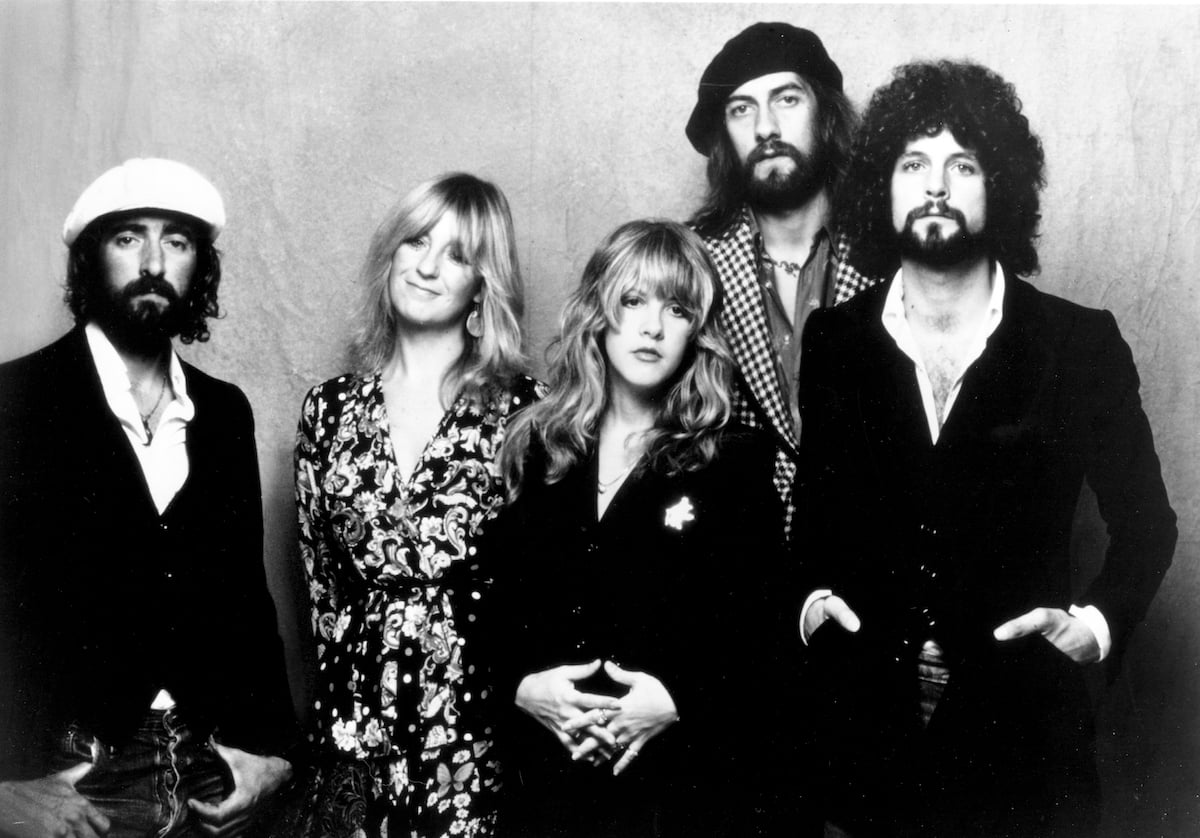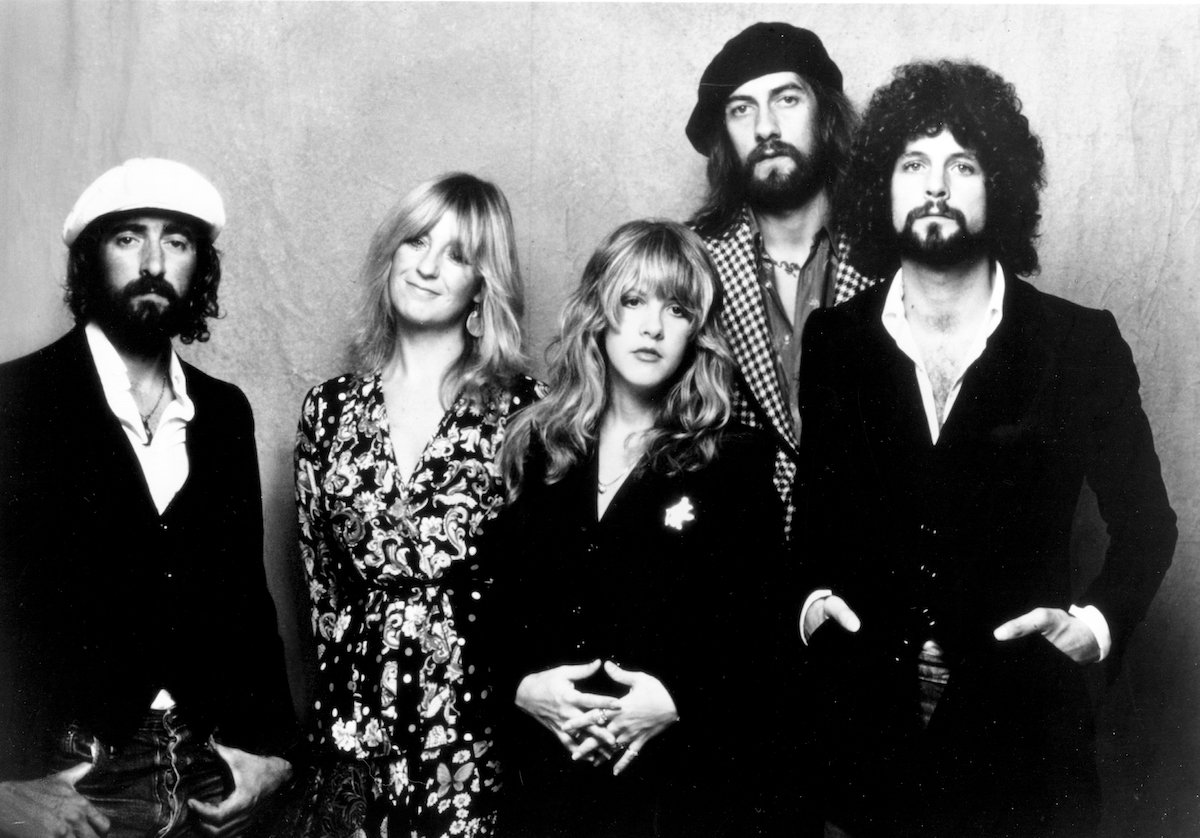
Why a Former Fleetwood Mac Producer Says the ‘Rumours’ Album Could ‘Never Happen’ Today
The Rumours album by Fleetwood Mac is still widely considered one of the greatest records of all time, but a former producer who helped create it said Rumours could never be made today. Here’s why the producer claimed the album wouldn’t work now, despite its continued success, and what singer Stevie Nicks said about making the historic record.

Fleetwood Mac released their most popular album, ‘Rumours,’ in 1977
When Lindsay Buckingham and Stevie Nicks joined Fleetwood Mac, they helped the band rocket to new heights of fame. The 1977 Rumours album became the classic rock supergroup’s biggest success, selling over 40 million copies worldwide.
Rumours was the band’s first No. 1 album on the UK Albums Chart, also topping the US Billboard 200. The singles “Dreams,” “Go Your Own Way,” “Don’t Stop,” and “You Make Loving Fun” all made the US top 10, and “Dreams” landed the No. 1 spot. Rumours sold over 10 million copies worldwide within a month of its release and won Album of the Year at the 1977 Grammy Awards.
The record’s success continued decades after it first came out. In 2003, the album was inducted into the Grammy Hall of Fame. In 2018, it was selected for preservation in the National Recording Registry, as it was deemed “culturally, historically, or artistically significant” by the Library of Congress.
Although it was Fleetwood Mac’s most popular album, Rumours was written during a time of great personal turmoil for the band members. Nicks and Buckingham were going through a bitter breakup, while married couple John and Christine McVie were on the verge of divorce. Drug abuse, affairs, and violent fights plagued the group throughout the recording process.
A former Fleetwood Mac producer who worked on the ‘Rumours’ album said the record ‘could never happen’ today
Former Fleetwood Mac producer Ken Caillat helped create the Rumours album, and he said a record like that could never be made today.
“Records like Rumours don’t happen anymore,” Caillat told MusicRadar in 2012. “We spent a year and a lot of hell working on it. Lives were changed, people changed, everything became different. Something like Rumours could never happen these days. A record label would have shut us down after two weeks.”
The producer said that making Rumours was like capturing “light in a bottle.” “Richard and I had to capture light in a bottle. The band would be tuning up, and before you knew it, a song was going down,” he explained. “John [McVie] and Mick [Fleetwood] would hear something, they’d start playing, and we had to react fast. That kind of creativity doesn’t happen these days – it’s frowned upon. In 2012, a band has to have a committee approve their songs. Can you imagine Fleetwood Mac making Rumours under such conditions?”
Stevie Nicks said she had a ‘great time’ making the record-breaking album, despite the turmoil among the band
Although making the Rumours album was stressful, Fleetwood Mac singer Stevie Nicks said she had “a lot of fun” during the recording process.
“We were all writing little movies around what was really happening, and we were digging it,” Nicks told ABC News in 2017, 40 years after the record was released. “We were having a lot of fun recording those songs, even though we were falling apart… if anything was keeping us from falling apart, it was going into the studio every day. And we were totally having a great time.”
While the band went through dramatic fights and breakups, the singer still claimed the experience was “fantastic.” “It was not awful at all, it was fantastic!” she said. “We were rich, we were young, we were falling out of love with each other, but, hey … there was a lot of other men and women in the world, and we were all moving on… So as bad as it was, it was still great.”


